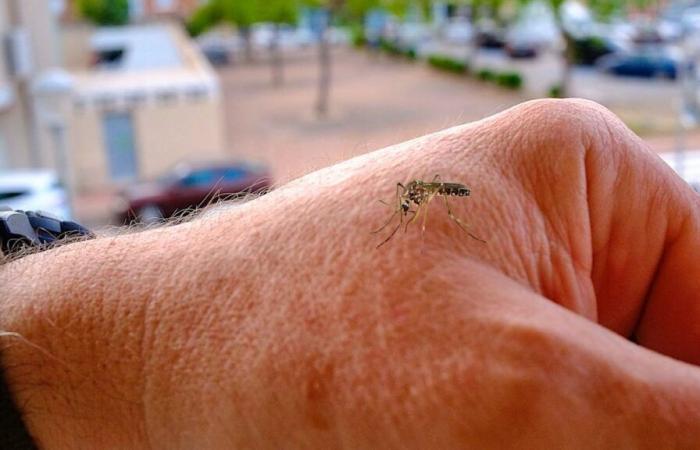Dengue, chikungunya, Zika: Metropolitan France is exposed to “a fairly high risk” of epidemics linked to the tiger mosquito in the next five years, the French National Agency for Food Safety (ANSES) estimated a few days ago, warning of the risks of saturation of the fight or strain on the health system. “An epidemic of arbovirosis, all viruses combined, has a probability of between 6 and 7, on a scale of 0 to 9, of occurring in the next five years” in metropolitan France, estimated the ANSES experts, informed by the consultation of field actors and a review of the scientific literature.
“Unlike France, Italy and Spain, no cases of indigenous transmission have been reported in Luxembourg, according to the most recent national data,” reassures the Luxembourg Ministry of Health, contacted by The essentials: “We do not yet have any tiger mosquito implantation in Luxembourg, which means that the risk of being bitten by this type of mosquito is currently almost zero.”
However, health authorities indicate that The essentials that ten cases of imported dengue fever were reported in 2023 in the country, compared to two cases in 2022. On the other hand, “no cases of Zika, chikungunya, or yellow fever have been reported.” What is the procedure in the event of a case detected? “We contact people and recommend not going out too much and protecting themselves against mosquito bites with insecticides.”
“We speak of an epidemic from the moment when it is not possible to link all infected people to a focus. This means that transmissions escape the control system,” explains Émeline Barrès, one of the two coordinators of the expertise published in France. The presence of the tiger mosquito, climatic conditions favorable to its reproduction, the arrival of infected people from areas of viral circulation, the effectiveness of the fight against mosquitoes and viral transmission all play a role in the outbreak of an epidemic.
“Monitoring vector mosquitoes is essential to guide public health and environmental interventions, in order to delay as much as possible the establishment of invasive mosquito populations in Luxembourg,” insists the Ministry of Health. In the Grand Duchy, surveillance by the Health Directorate of invasive mosquitoes began in 2022, in view of the evolution of their presence in neighboring regions. Surveillance will be reinforced in 2023 and 2024, in particular through awareness campaigns among health professionals, in order to improve the detection of cases and prevent their spread. “Diagnosis is important to make in order to be able to put in place measures to prevent transmission.”
Are you already following us on WhatsApp?
Subscribe to our channel, activate the little ???? and you will receive a news recap every day in early evening.






